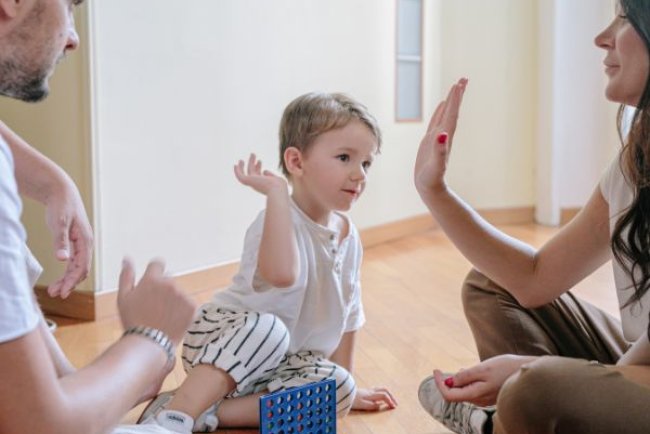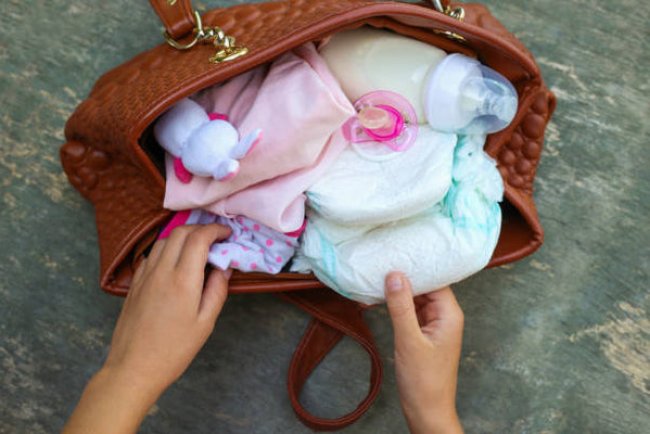Helicopter Parenting: Finding the Balance Between Protection and Autonomy
Discover the art of Helicopter Parenting: Finding the Balance Between Protection and Autonomy in this comprehensive guide. Learn how to strike the right balance for your child's growth and independence.

Introduction
Parenting is one of the most difficult yet rewarding jobs in the world. There is no rule book or perfect way to raise a child. Each child is different, and each parent brings their own unique style, values, and priorities to the role.
In recent decades, the concept of "helicopter parenting" has emerged, characterized by parents who hover closely over their children and try to eliminate any possibility of failure, disappointment or discomfort. While coming from a place of love and concern, some experts argue this approach can backfire by hindering a child's development of independence, problem-solving skills and resilience.
As with many complex topics, the reality is nuanced. Reasonable people can disagree on where to draw the line between protective parenting and allowing autonomy. This article aims to thoughtfully explore both sides of this debate. My goal is not to criticize any parenting style, but rather shine light on an issue many families grapple with privately. Perhaps by sharing different viewpoints and experiences openly, we can gain mutual understanding and wisdom.
Finding the Right Balance
Allow me to start by acknowledging that every parent wants what is best for their child. The desire to keep kids safe, cared for and prepared for life is fundamentally human. Though approaches may differ, the underlying motivation is always coming from a place of love.
With that in mind, most experts agree that some degree of balance is needed between protecting children and allowing them to develop independence over time through manageable challenges and risk-taking. But determining exactly where to draw that line can admittedly be tricky for any parent. A few key factors often determine each family's approach:
- Personality of the child. Some children thrive with more structure and safety nets, while others need room to explore on their own terms. One size does not fit all.
- Parenting style of the caregivers. Values around safety, trust and control play a role.
- Cultural environment. Community norms and expectations inevitably shape each generation.
- Exposure to risk. Cities pose different day-to-day dangers than rural areas, for example.
- Life stage. What seems appropriate support at age 5 may enable dependency at 15. Standards need to evolve with maturity.
Rather than harsh judgments, a spirit of compassion and nuance is needed. Every parent wants the best for their kids. The wisest families maintain open dialogue to establish age-appropriate independence over time in a supportive way. Though opinions may differ on methods, our shared goal should be raising thriving, independent-minded individuals.
Potential Downsides of Helicopter Parenting
With good intentions, some helicopter parenting approaches have been linked to potential downsides if taken to an extreme or applied too rigidly:
- Delayed development of problem-solving skills. When parents intervene to solve every minor issue or remove all frustration, children miss opportunities to think creatively to overcome small obstacles themselves. This can leave them ill-prepared for independent challenges later in life.
- Lack of resilience. Facing minor failures or frustrations in a supportive environment helps build mental toughness. But if protected from any difficulty, some children may struggle to cope with life's inevitable ups and downs and disappointments.
- Dependence and entitlement. Doing everything for one’s child can foster the belief that someone will always be there to solve their problems or bail them out, instead of taking initiative independently. This mindset may translate into the real world.
- Stunted social-emotional growth. Part of childhood discovery involves making choices, facing consequences and learning from mistakes in a safe space without harsh judgment. Helicopter parenting can deprive children of that more natural learning process.
- Rebellion against control. Teenagers and young adults may react negatively if given no say or freedom for too long. Strict, overly-protective parenting runs the risk of children pulling away too quickly without important life skills once independent.
- Mental health effects. Some research links high-control, low-autonomy parenting to increased anxiety, fear of failure and decreased self-worth in children as they mature. While correlation does not equal causation, these trends warrant reflection.
- Hindered development of interests. When every activity, class and hobby is tightly scheduled and planned by parents, children may feel pressured into certain lanes with little say over how to spend their own time or find intrinsic motivation. Exploration allows identity to unfold organically over time.
So while meant kindly, removing all bumps in the road or problem-solving responsibilities from a child's path risks depriving them of valuable skills practice for independent adulthood. Of course, finding moderation is key to avoiding the downsides while still providing needed supervision as kids mature.
Potential Benefits of Protection and Support
However, dismissing protection altogether risks going too far in the other direction by expecting too much independence too soon. Appropriate levels of oversight and involvement from caregivers also carry benefits for healthy development:
- Physical safety. Young children especially need watchful eyes to avoid dangerous situations. Guidance helps them safely explore their capabilities at each stage.
- Emotional well-being. A support system provides comfort, coping strategies and accountability during difficult times. This security allows kids the confidence to navigate challenges.
- Role modeling. Watching how parents handle problems and make decisions themselves teaches valuable life lessons for kids to later apply independently.
- Preparedness. Guidance laying appropriate groundwork sets children up for success when taking on more autonomy. Too much independence without guidance risks poor choices from lack of experience or support.
- Academic achievement. Involvement in schoolwork, activities and college/career options correlates with improved outcomes. Balance allows interests to blossom productively.
- Time for childhood. Prioritizing fun, play and skill-building without excessive pressure lets kids fully enjoy each stage before adulthood responsibilities set in. This fosters well-rounded growth.
- Cultural responsibilities. In some communities, interdependence and multigenerational ties carry value. Parents provide important socialization as kids learn cultural roles and duties.
So while independence comes with benefits, children still need care and assistance from those establishing value systems at a young age. As with other aspects of parenting, discretion and moderation are key to leveraging protection’s advantages while still cultivating autonomy over time. There are merits on both sides to considering thoughtfully.

Setting Age-Appropriate Boundaries
Most developmental experts agree that allowing increased responsibilities in graduated stages correlates with healthy maturity. However, discerning what is suitable at each age can differ family to family:
- Early childhood (0-5 years): Close supervision is normal. Activities are primarily chosen by parents with some input. Correction, guidance and safety are priorities over independence. However, choices within limits build confidence.
- Elementary years (6-10 years): More freedoms may emerge situationally with parent permission and check-ins. Things like playing outdoors unsupervised nearby, making minor decisions about schedules or friend activities with parent approval. Setting basic boundaries.
- Tween years (11-13 years): Still overseen significantly but granted slightly expanded capabilities depending on maturity. Walking to parks alone, accessing public transportation with guidance, planning friend dates, handing money with limited spending allowances.
- Early teens (14-15 years): Greater independence may unfold gradually. Activities are discussed mutually but not helicopter managed. Responsibilities like household chores or part-time jobs build life skills. Own money management starts within reason.
- Late teens (16-17 years): Likely living semi-independently. Driving privilege necessitates freedom but also responsibility over curfews, chores, planning proms/events, beginning college prep autonomously with parental consultation.
- Emerging adulthood (18+ years): Discretion is exercised over living situation, career or education paths, managing own time, healthcare, finances and relationships. Parents transition to an advisory/backup role instead of primary governance.
Of course, not every family follows these stages perfectly depending on the situation. And individual parenting still plays a large part, with some children ready sooner than others for incremental autonomy based on maturity displayed. The goal is providing scaffolding of responsibility appropriate to each developmental level.
Establishing Trust and Ongoing Dialogue
A major factor for any dynamic to thrive long-term involves mutual trust between parent and child. This fosters honest communication to clarify expectations on both sides, establish reasonable boundaries, and work through bumps collaboratively over time. Some guiding principles:
- Be consistent. Following through gently and fairly on agreed upon rules builds reliability children can depend on as they test limits. Flexibility on small matters retains trust.
- Pick battles wisely. Save confrontation for essential safety or character issues rather than perceived slights. Kids need space to learn without feeling policed at every turn.
- Explain motivations. Help children understand rationale behind parenting so they feel listened to rather than just controlled as they gain reasoning abilities. This fosters cooperation.
- Let consequences teach natural lessons when possible versus harsh punishment. Use mistakes as guidance opportunities that don't induce lasting shame. Children will internalize responsibility in their own way and pace otherwise.
- Compromise respectfully when appropriate by hearing children's perspective with empathy and an open mind, while still providing needed oversight. "I understand why that seems unfair, but as your parent I must ensure your safety by enforcing this boundary for now."
- Apologize when mistakes are made on either side to model humility. Parenting is a learning process for all.
FAQs
What's Your Reaction?




















